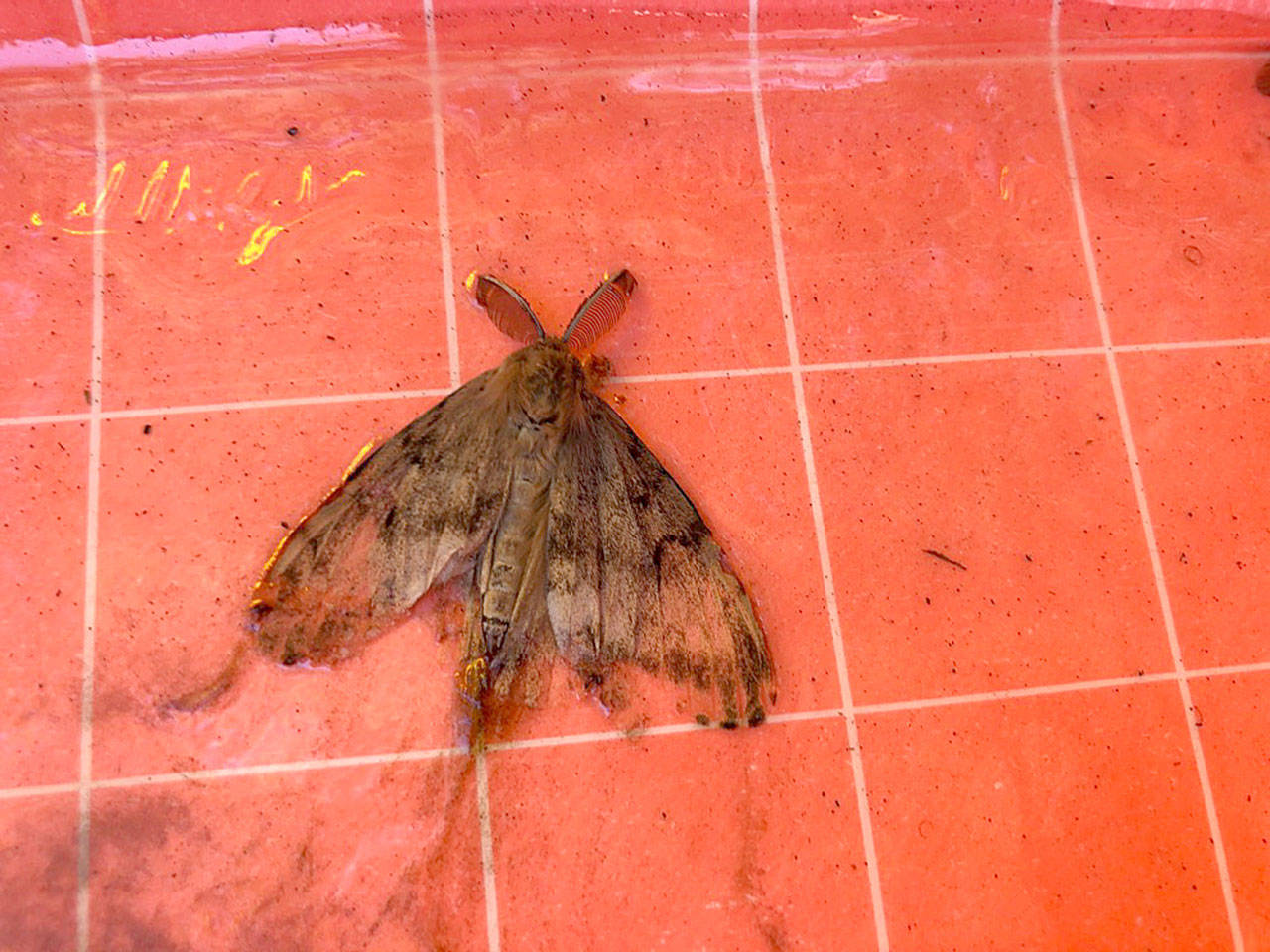Associated Press and Herald staff
OLYMPIA — Areas of Woodway and Everett likely will be sprayed with an insecticide to stop an outbreak of gypsy moths, including a type native to Asia never before detected in the U.S.
The invasive insect, whose natural range includes Japan, Russia and the Kuril Islands, turned up in Woodway July 25.
The Washington State Department of Agriculture said it tentatively plans next spring to release Bacillus thuringiensis var. kurstaki over Woodway and the Everett neighborhood of Boulevard Bluffs.
Officials say a Hokkaido gypsy moth trapped in Woodway was the first Hokkaido moth caught in the U.S. Three hybrid Asian gypsy moths were caught in Boulevard Bluffs.
Gypsy moths native to Asia are more mobile than European varieties and are considered more of a danger to spread.
Before finalizing plans to spray next spring, the department will conduct environmental reviews and consult agencies including the U.S. Department of Agriculture.
The Hokkaido moth has caused extensive damage to Japanese Larch but feeds on many types of trees and shrubs found in the Pacific Northwest, according to Sven-Erik Spichiger, managing entomologist for the state Department of Agriculture’s plant protection division.
Like the Asian gypsy moth, the Hokkaido moth most likely stowed away on a bulk cargo ship from an infested area across the Pacific Ocean.
The gypsy moth is considered the worst forest pest insect ever to find its way into the country, according to the Department of Agriculture. It has defoliated millions of acres of trees and shrubs since first arriving in the United States in 1869, when a naturalist brought over a bunch of its eggs to cross breed with silk worms.
The gypsy moth was first detected in Washington in 1974. Since then, a few have have been trapped almost every year, but a permanent population has not been established. Washington has sprayed for gypsy moths most years since 1979.
In recent years, the moths have been trapped locally in Snohomish, Mukilteo, Camano Island, Oak Harbor and Martha Lake. The one trapped near Martha Lake was an Asian gypsy moth and resulted in aerial spraying over about 700 acres in May.
Talk to us
> Give us your news tips.
> Send us a letter to the editor.
> More Herald contact information.

























